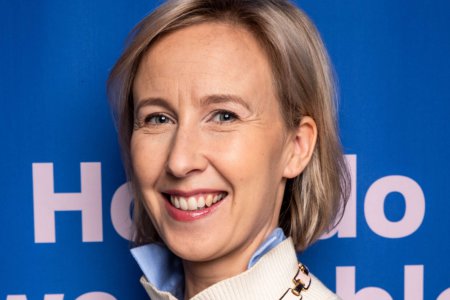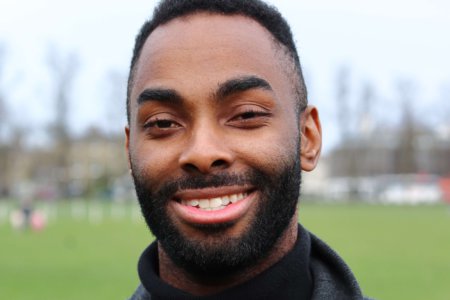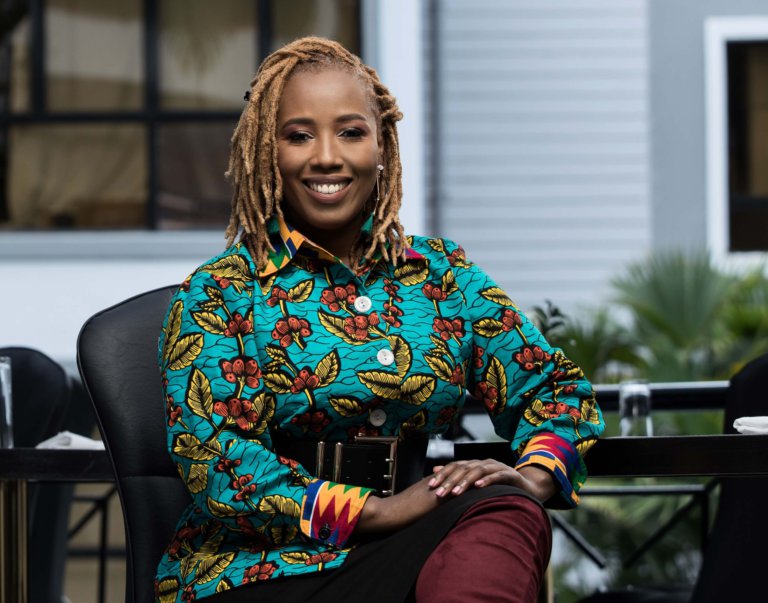
Hard work pays off and in Nuru Mugambi’s case, it rings true. She began her journey from Kenya to the US working as a waitress during the day while pursuing BBA night classes at Kennesaw State University.
Wanting to gain more professional work experience, Mugambi landed her first internship in 1997 while still studying. In 2008, after graduating from Georgia State University with an MBA, she has since worked her way up to a leading role at the Kenya Bankers Association.
She’s also made major contributions towards policy formation in the banking industry which includes the field of sustainable finance and digital accessibility for persons with disabilities. This has garnered her attention from the likes of Barack Obama, pegging her as an emerging African leader.
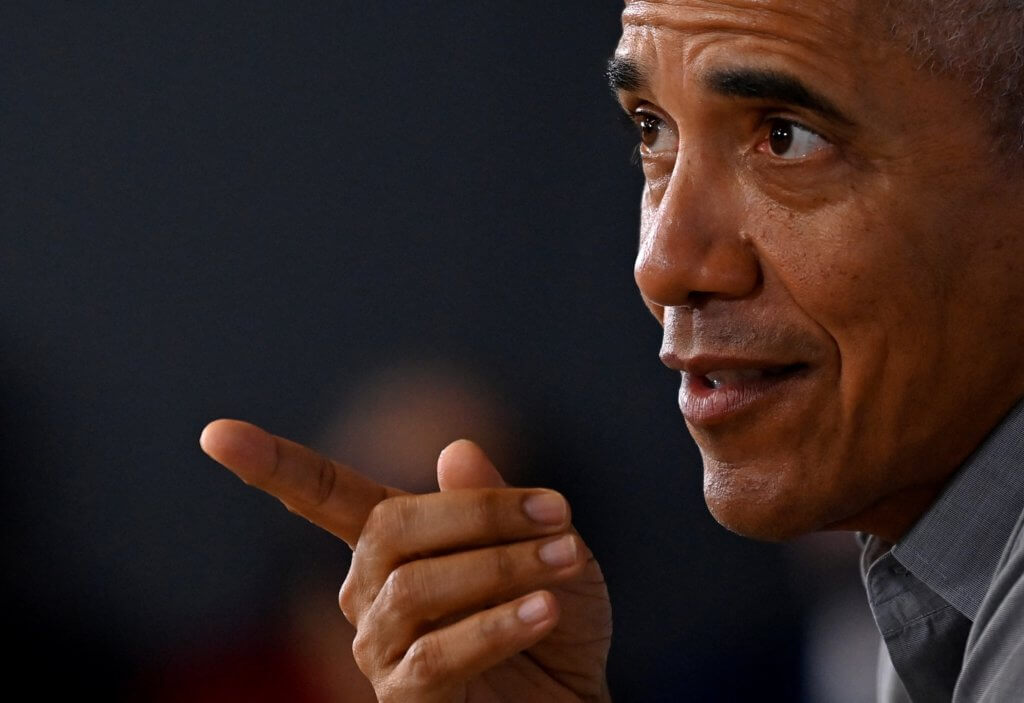
Mugambi’s work as an emerging African leader has garnered the attention of people like Barack Obama. Source: Ben Stansall/AFP
To further add, when she was 33, Mugambi was diagnosed with Lupus and was told she wouldn’t live past 40.
Now, at 43, she’s grateful to be alive and continues her winning streak (recently receiving the Sheth International Alumni Award for Exceptional Achievement).
Below, Study International speaks to her via email on her BBA and MBA experience, her interest in business and finance, and what advice she has for fresh graduates.
Where does your interest in business and finance come from?
Growing up, I had two uncles who were CEOs of banks and another relative who founded one but I never really considered it as a career path. When I moved back to Kenya after working at a Fortune 100 consumer and forest products company.
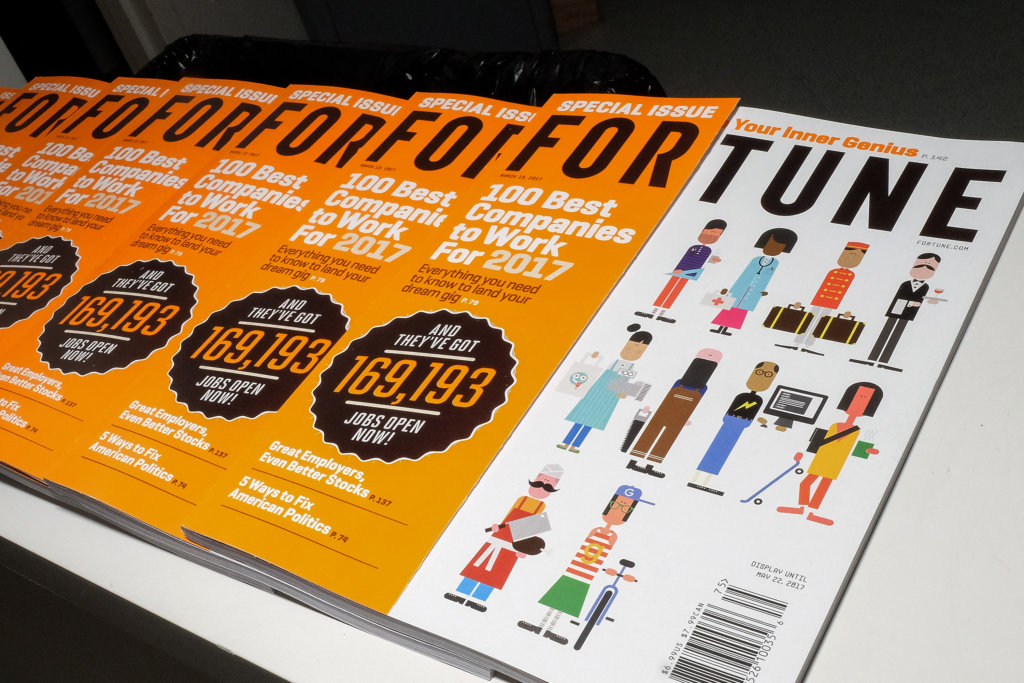
I moved back to Kenya after working at a Fortune 100 consumer and forest products company,” she says. Source: D Dipasupil/AFP
I researched the strongest sectors in the region and the number one sector in Kenya at the time and it was banking. With this information, I consulted with relatives and sought their advice to help me zero in on it.
What made you choose to study in the US? Tell us about your journey there.
Affordability. My parents could only pay my tuition for one semester so I knew I had to work on campus so I could pay my fees.
My older sister was in Atlanta so we were able to live together for a while and make ends meet. The first few months were difficult (sharing a room, a bed and having two other roommates) until we were able to save to get a bigger place.
Certainly humble beginnings but by the grace of God, we made it. We survived on 99 cents macaroni and cheese, hotdogs, and barely had any vegetables. However, this experience made us both more resilient.
Can you share a little of your career trajectory with us?
I’ve been fortunate to work in many different sectors through the clients I’ve supported (retail, communications, automotive, consumer products) which now includes finance. My first internship was in the 1990s when I was 18.
This was at Africa Online who, at the time, introduced the Internet to East Africa and needed interns to learn about HTML coding. Although I was only being paid enough to cover my bus fare and lunch, the experience was immeasurable. To this day, I still know how to design and build websites.
The most important lesson I learned is that sometimes you will have to choose a job for experience and exposure — not for the salary. When you are starting out, you pay attention to the former versus the latter.
In my experience, the best career moves are not about the money. Now, I hold the role of Director of Public Affairs & Sustainable Finance Lead for the Kenya Bankers Association.
What do you think most of your classmates during your BBA programme didn’t know until they started their careers?
During my time as a BBA student, I would say many international students (including myself) didn’t know or appreciate the power of building professional networks of fellow students. I see now, in hindsight, why people join sororities and fraternities.
The positioning of these organisations was more social back then which is another reason why foreign students don’t consider them as an avenue to build post-university professional networks.
Is there anything you wish you studied more of?
Economics and finance because I didn’t realise I was good in these subjects. It’s almost like I had a mental block.
When I go back to look at my transcripts, I actually did well which is possibly why I ended up in the banking industry.
Walk us through your first job interview process.
My first job when I was a BBA student was at Edelman. I worked there as an intern before graduating and was then eventually hired as an employee.
The interview was great because the lady who was asking me questions (Becca Brett) was very nice and encouraging. I’ve had difficult interviews over the course of my career so, in my opinion, you really need to prepare and understand the needs and goals of the institution you’re looking to join.
Also, doing background research on who is interviewing you and who the hiring manager is, would be really helpful.
My #EFjourney was amazing. I’ve learned a lot and inspired to continue championing #sustainablefinance#changingfinance #financingchange pic.twitter.com/Ho1K2AyqrI
— Nuru Mugambi (@NuruMugambi) November 17, 2016
What’s your advice for other fresh graduates who want to apply for the same job as you?
Start now. I hear a lot of young people say they’ll start their internship just before graduation and I would say that’s four years too late. Your competition is everyone in the job market and your peer group.
So, the sooner you can get work experience, the better. Even if it’s taking internship gigs during holidays if your course load doesn’t enable you to work and study at the same time.
In this day and age, I also think it’s not fair to expect your parents to pay your college tuition. They have their retirement to worry about so the sooner you have a source of income (along with experience), I would say go all in.
The way the world works, any work experience in a professional environment can count. For instance, I was talking to a truck driver who had an accident and couldn’t walk.
He was concerned about not being able to drive trucks around anymore. I found out he had driven long-haul trucks for over 20 years and knew his way around several states.
I encouraged him to look into a career in logistics or fleet management. He didn’t think he had enough “experience” that he could parlay into a new career but we always gain this which can translate into a new environment.
If you could go back in time for a one-on-one mentoring session with yourself, what would your advice be?
Be kinder to yourself. I think many of us (ladies) struggle by being very self-critical and I think we need to allow ourselves to ricochet from failure, appreciate the lesson and quickly move on.
How did you spend your first paycheck?
I don’t remember! That was 26 years ago.
I didn’t do anything sentimental with the money. I do remember a coworker and I saved up a few months and treated ourselves to lunch at a nice hotel where our fathers used to have business meetings. It made us feel very important and inspired us to work harder.
What’s more important: work satisfaction, salary, social life, or a work/life balance?
It’s all-important and that decision ebbs and flows depending on the season of your life and the circumstances in which you find yourself. Currently, I would say I am in a work/life balance season.









